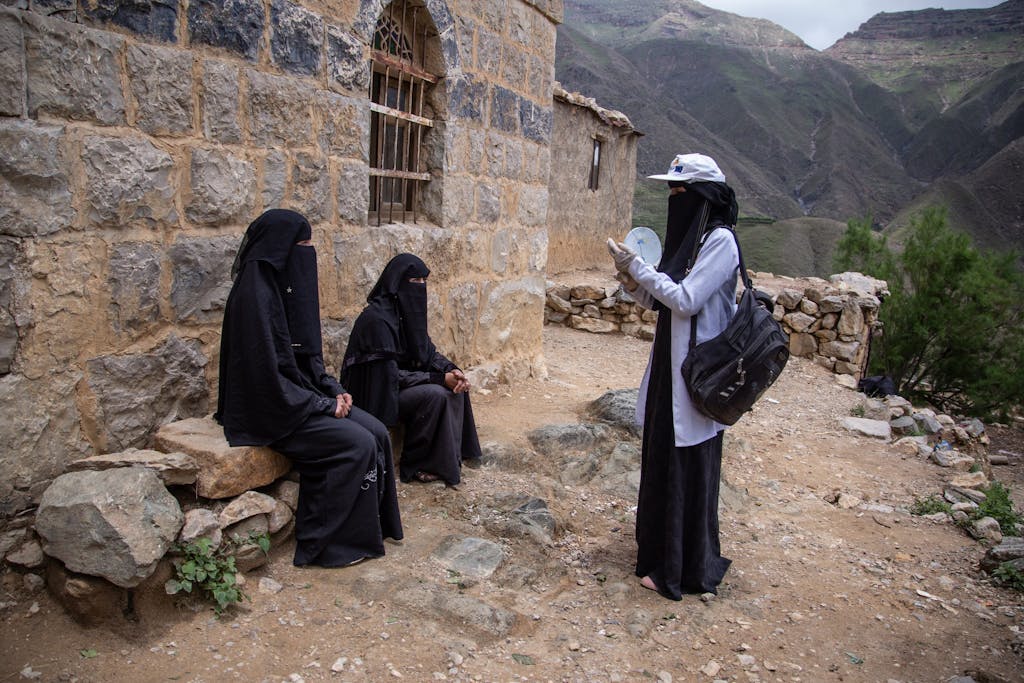One of the many things this pandemic has shown us is that we are only as strong as our weakest link. To protect ourselves next time, we must support investments in health systems that work for everyone everywhere.
Pandemic preparedness and health security – longstanding issues for global health insiders – have risen to new levels in the public consciousness as the effects of poor pandemic preparedness have been felt, in varying levels, by billions around the world. The virus has also brought into stark relief huge persistent inequities in access to health care. Black Americans are more than twice as likely to die from it than whites; while domestic violence rates have spiked with many families forced to stay at home. Inequality in all its forms – poverty, race, gender, sexual orientation – mean COVID-19 takes a much greater toll on some.
Additionally, a major consequence of the COVID-19 pandemic is the alarming disruption of essential health services, such as routine immunizations and family planning services. Without vaccination campaigns, many children are at an even greater risk of acquiring easily preventable diseases, such as measles and polio. Resilient and equitable health systems are crucial in withstanding shocks and allowing care to continue for all communities, especially those already marginalized.
Pandemic threats are nothing new
For decades, the threat of a pandemic was raised by experts. Foreshadowing of catastrophic economic collapse, failing supply chains, and unprecedented loss of life has now proved prophetic. Sadly, inaction on health system strengthening is also nothing new.
Pandemic preparedness and response aims to reduce the spread of disease and allow communities to recover. But as we’ve seen, no country has been sufficiently prepared to respond to the previously unknown global threat of COVID-19. Governments need to reassess their current health systems both in terms of how they cope and who they reach, understand local and national contexts, and reevaluate health security priorities. A fragmented response can exacerbate epidemics. United, coordinated, and phased action will reduce further harm and prepare us for a new future and the next emergency.

Building Back Better with UHC at the Center
If we want to improve the resilience of health systems, we have to think about our current health infrastructure. How can countries improve their basic public health capacities? What should change so that the most vulnerable are financially protected when resources are scarce? Which populations are more susceptible? How can we build better systems to protect the health of everyone, everywhere?
Universal Health Coverage (UHC) – ensuring equitable and affordable access to quality health care for all people – will be essential to these efforts. Inequality, economic progress, individual livelihoods, and health outcomes are intertwined.
In 2019, countries reaffirmed their commitment to achieving the Sustainable Development Goals (SDGs) at the High-Level Meeting on UHC. Less than a year on, we can see that action towards this commitment is needed now more than ever. A recent discussion paper on health emergencies and UHC from UHC2030, a movement of organizations to advance Universal Health Coverage, stresses that these commitments will not deter, but rather help guide us towards effective emergency response. Here’s why investing in UHC is one way to ensure we are all better prepared next time:
The impacts of COVID-19 on delivery of care, health financing, and governance are immense and pose opportunities for both UHC and health security. UHC stresses the importance of improving access to health promotion, prevention, and treatment. The quality of a nation’s primary health care system can affect the delivery of all medical care. Not investing in primary health care can result in lack of access to key preventative services; poor chronic care management; and high out-of-pocket payments — issues that lead to poorer health outcomes, particularly for at-risk populations like Black and indigenous communities. Building back better on our public health infrastructure will require prioritizing laboratory and testing capacity, fact-based health promotion, and vigilant disease surveillance. An underfunded primary health care system system coupled with a weak public health infrastructure is detrimental in normal times, and dangerous in times of emergency.
Investing in UHC is wise and cost-effective. It should start on critically evaluating how funds are being spent and making sure sufficient funding is allocated to Common Goods for Health, which includes things like disease surveillance, planning emergency response, regulation of medicines, sewage treatment. The Asian Development Bank estimates that COVID-19 pandemic could cost the global economy more than $8 trillion. Ultimately, effective pandemic control could make the next such emergency less costly and help economies recover faster.
Protecting the health of all – regardless of race, ethnicity, gender identity, or religion – requires political action. COVID-19 has pushed leaders to make difficult and real time decisions based on current conditions. But policymakers need to take a hard look at our existing infrastructures, including the public health system, and structural failures, such as systemic racism and inequality that affect access. Countries need to take whole-of-government and cross-programmatic approaches that will instill trust and promote equity, transformation and accountability. The UHC movement’s key asks are crucial guidelines for governments as they respond to the pandemic’s emerging priorities and seek to create resilient health systems that leave no one behind.
Rethinking Health Systems for a New Normal
The world has been irrevocably affected by this pandemic. The new normal is uncertain, but what has been excruciatingly evident is that most health care systems, even those in high-income countries, are not sufficiently prepared and discriminate against some communities. The responsibility of governments to prioritize basic public health infrastructure for all, invest in health promotion programs, and improve data and monitoring systems will be put to the test in the coming months. Countries that invest in health equitably will have a better chance to protect their populations from threats, as well as promote economic and political stability, domestically and abroad.
Rethinking health care doesn’t necessarily require building systems out of scratch. There is already a global political commitment to achieve UHC through the SDGs. There are already numerous preparedness strategy plans and specific objectives for health systems policy. It’s time for us to reshape our futures and prevent, not react. It’s time for governments and other sectors to rethink health security, redesign our health systems, and realign our priorities. That’s how we build back better.
Featured Image: WHO / NOOR / Sebastian Liste



 View All Blog Posts
View All Blog Posts


